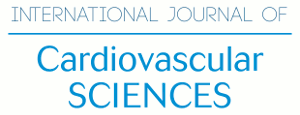Abstract
Under balanced conditions, hemostasis is maintained by a complex interaction between endothelium, platelets, and coagulation factors. Situations involving injury and discontinuation of the endothelial lining stimulate the adhesion, activation, and aggregation of platelets, culminating in the formation of arterial or venous thrombi. In this context, antiplatelet therapy occupies a prominent role in the management of pathologies arising from this process, notably acute coronary syndromes. The increased conceptual understanding of receptors, agonists, and antagonists of the pathophysiological cascades involved in this process has allowed the development of new drugs and refinement of the current therapy, demanding a complete knowledge of the arsenal of antiplatelet agents with respect to their indication, dosage, moment of administration, and duration of treatment. The objective of this review is to define the role of antiplatelet drugs in the management of acute coronary syndrome, revisiting aspects that have been already consolidated and addressing current and still controversial topics on the subject.
Keywords
Acute Coronary Syndrome; Myocardial Infarction; Platelet Aggregation; Blood Platelets Inhibitors; Antifibrinolytic Agents.
